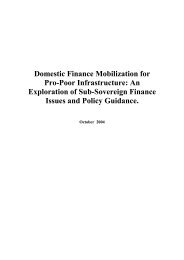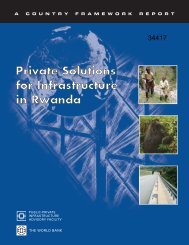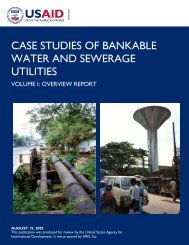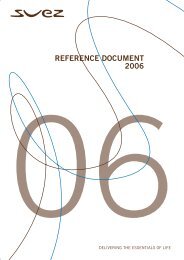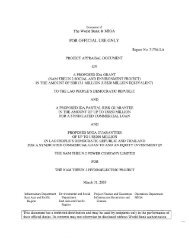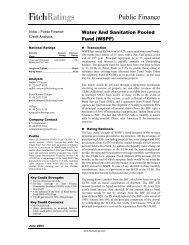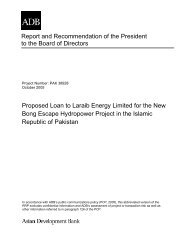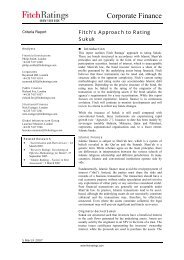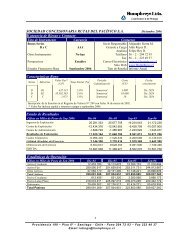EAP - The Pacific Infrastructure Challenge - World Bank (2006).pdf
EAP - The Pacific Infrastructure Challenge - World Bank (2006).pdf
EAP - The Pacific Infrastructure Challenge - World Bank (2006).pdf
Create successful ePaper yourself
Turn your PDF publications into a flip-book with our unique Google optimized e-Paper software.
eform option, we do not discuss privatization in detail, although we touch on<br />
private sector service provision under the heading of competition.<br />
<strong>The</strong> institutional challenges differ along the continuum of organizational options. For<br />
example, smaller countries with strong informal tribal governance arrangements may<br />
find it more difficult to implement high quality corporatization and State Owned<br />
Enterprise models, since this requires clear separation of roles of government<br />
appointed Boards (which should pursue commercial objectives), and the government<br />
itself, pursuing a wide range of policy targets. Privatization and PSP contracts are<br />
better able to achieve the required arms-length separation in these settings. On the<br />
other hand, arrangements involving the private sector require high levels of skill for<br />
effective regulation.<br />
When selecting a reform option, governments will need to think carefully about the<br />
whether the chosen approach is applicable to improving service to rural and remote<br />
areas as well as urban areas. In assessing reform options for rural areas, governments<br />
will need to analyze affordability and willingness to pay for services. It is likely that a<br />
different approach or even a different mix of services from those offered in urban<br />
centers may be more appropriate.<br />
Public Sector Reform<br />
Most <strong>Pacific</strong> governments have initiated public sector reforms to address poor<br />
infrastructure sector performance. This has delivered mixed results.<br />
Corporatization has been implemented in some <strong>Pacific</strong> countries and, where<br />
effectively implemented, has increased efficiency and revenue for operations and<br />
maintenance in various sectors. Corporatization has worked well with the PNG<br />
Water Board, in electricity supply in Fiji (see Box 7.5) and in the Samoa Ports<br />
Authority. However, in the water sector in Fiji, failure to achieve true separation<br />
from government by appointing a strong independent Board and management team,<br />
contributed to failed reforms.<br />
47



